Arrogant and dismissive, is Virat Kohli fostering a self-destructive culture in 2021?
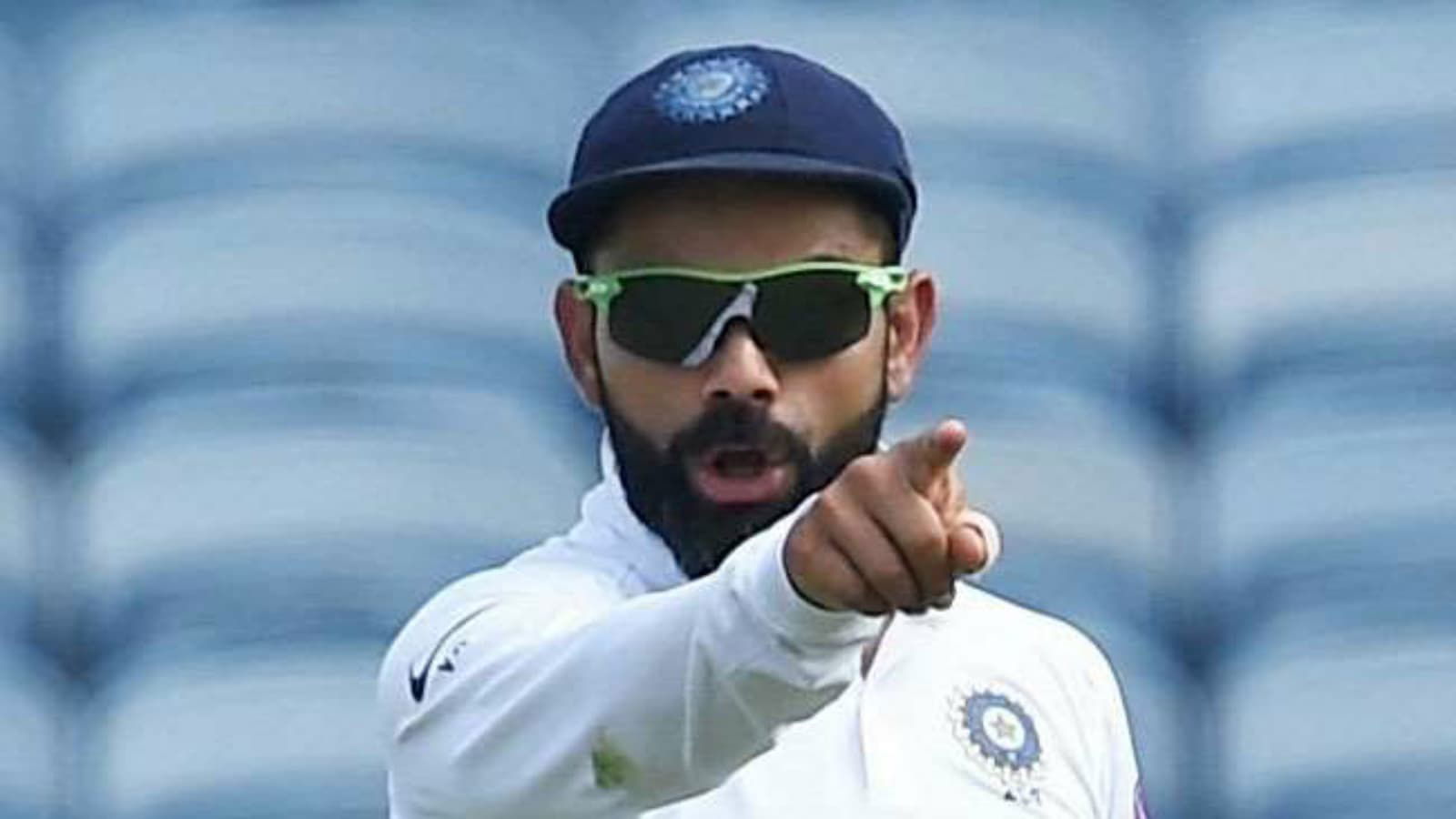
Kohli has 70 international centuries and has perhaps set his own bar too high
Virat Kohli looks into the camera, then away and then right back into the camera as a temporary smirk gives way to a slight pause and he answers yet another question dismissively. He takes a momentary pause, lifts his arm to rub his nose and resumes talking in his extremely self-assured tone, “We like to be in this situation where people come at us with doubts and really start questioning the ability of our team. That is the situation we love best!”
The post match press conference after India’s innings defeat to England at Leeds seemed to expose a very sadistic reality of Mister Kohli’s. According to the implications of his words, it is a world where everyone around derives pleasure in berating the Indian team for seemingly very little reason. It would be really dark if it were true. Except that it is not and is a figment of his mind’s imagination. The agenda, which Kohli seems to be implying, is a narrative built by their own selves and is admittedly a space within which they thrive.
Take, for example, Tim Paine’s verbal barrage on the back of which India won two consecutive Test series Down Under. Or even the battle of Lord’s where the English bowlers, led by James Anderson, dragged themselves into as literal a fist fight a cricket match can get with the Indians. It is a lesson that they should have learnt – Indians should not be engaged in street fights and battles of the mind and character. They are very good at it. Instead, they should be challenged in skill, which by evidence they may not always be the greatest at.
Kohli and the dismissive attitude
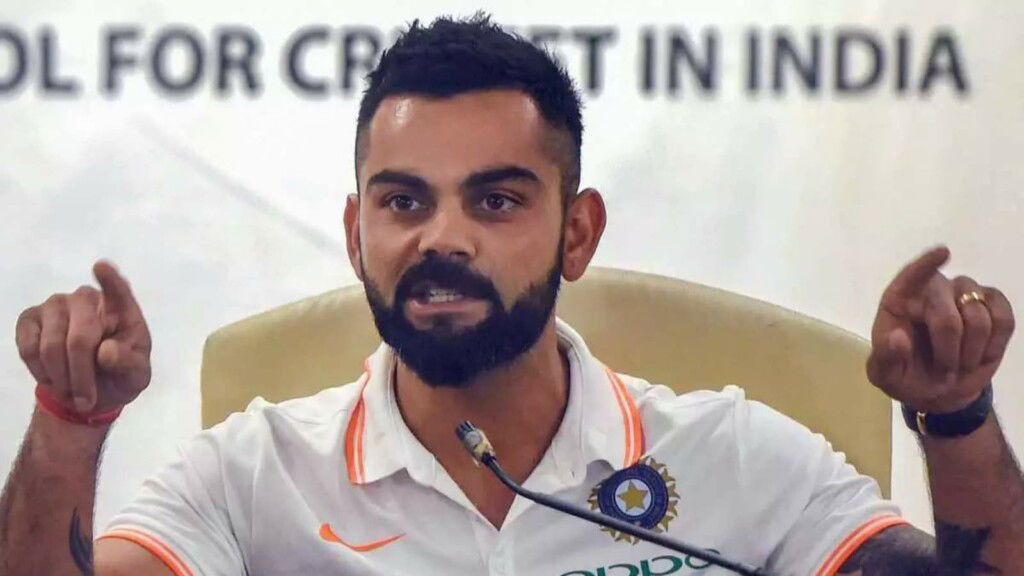
However, not every game of Test match will be a battle of who keeps their head as tempers begin to flare. No matter how much Kohli remonstrates at the fall of a wicket, oppositions want to only play cricket. There is no reality where people are waiting for Indian cricketers to fail. No reality of schadenfreude from any stakeholder involved.
Players play against them. Commentators call the game. And journalists communicate what they see. If something is good, so shall be portrayed. And similarly, if a thing is not correct, so shall be portrayed. When India wins a Gabba and a Lord’s, they are rightly praised. And when they collapse twice in the space of three days, in continuation to the innumerable collapses which have been swept under the carpet, doubts will very rightly be raised.
The dimension where everyone is Kohli’s enemy, the team’s ill-wisher and their opinions should be dismissed simply because they are not in the situation is a seriously all-consuming space to exist in.
During the post match press conference, a journalist said that perhaps playing on the backfoot would be more beneficial to combating the English bowlers in these conditions. The implied meaning of this was to suggest that meeting the ball late would help the batters as the constant forward press combined with standing outside the crease has not been beneficial.
Joe Root has been scoring runs in that fashion and so have others. It is a tried and tested method which resulted in success for the likes of Younis Khan, who had been advised so by Mohammed Azharuddin. Kohli’s response to this was, “Okay, thanks!” and quite annoyed, he took the next question.
And this reaction is not reserved for journalists. It is seemingly same for ex-cricketers who have been immensely successful batsmen facing challenges from some of the bona fide legends of the game. These same stalwarts have, on multiple occasions, hinted, through sources, that their opinions are not sought and sometimes even ignored when offered.
Is Kohli not good at accepting reality?
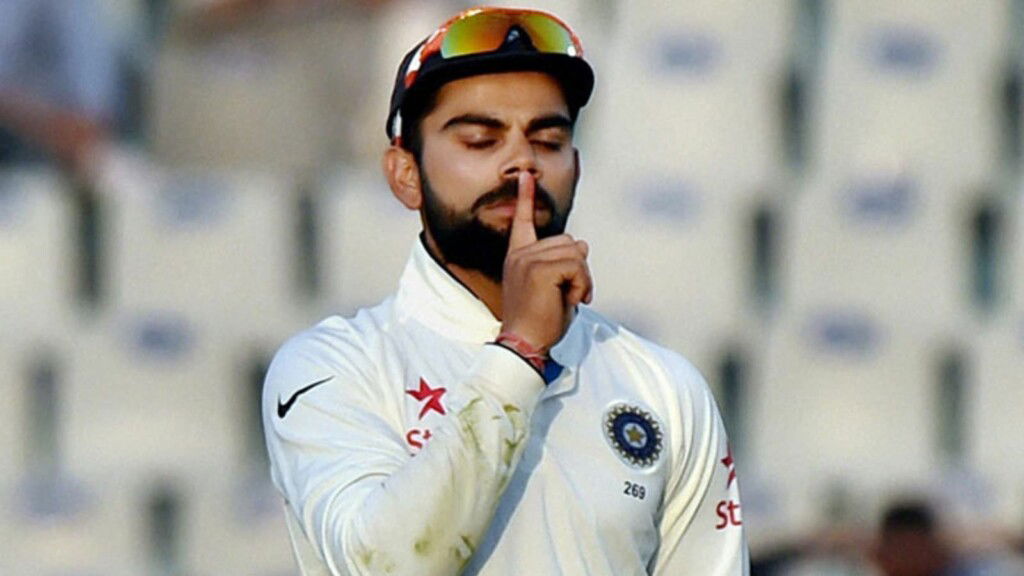
In fact, this pompous attitude is quite representative of real-life situations where the subject inflicts unnecessary pain on their own self by living in denial of reality.
For example, imagine a man is consistently separating from his partners and everyone around can see that it is because of his possessiveness. His friends, colleagues, relatives and even some of his partners try to tell him about it while maintaining, at the same time, that he is otherwise doing well for himself.
Imagine this man’s response to being told of his need to work on giving space to his partners is thus – I like to be in this situation where people come at me with doubts and really start questioning my ability. That is the situation I love best!
Acceptance is a key ingredient for evolution. Those who do not accept their faults or shortcomings usually become dinosaurs of that domain. Look at Ram Gopal Verma from Bollywood. Or even Jose Mourinho from football. It happens to everyone who cannot accept reality. The importance of acceptance is that it forms the first step of self awareness and awareness of reality. And that helps in moving forward.
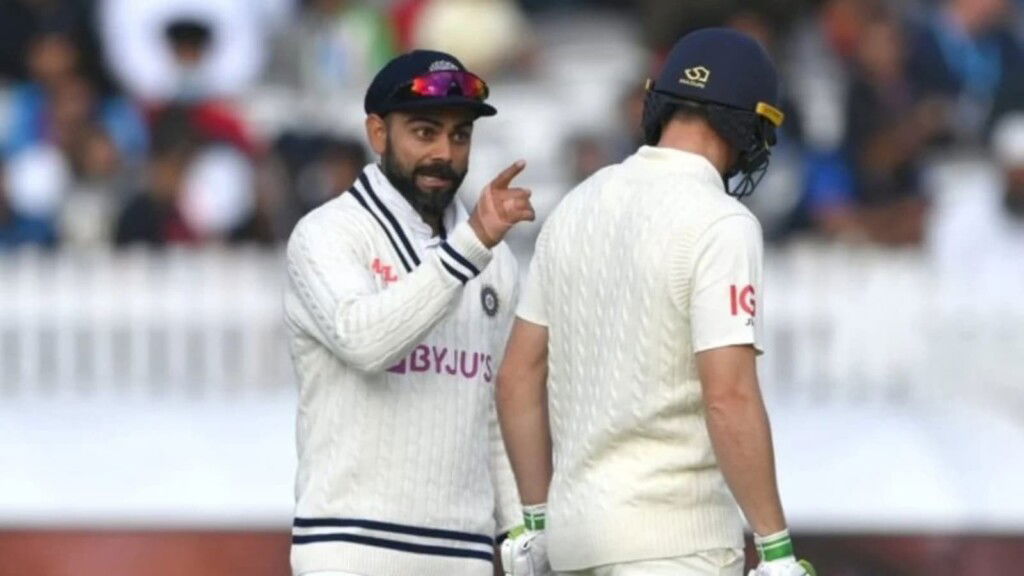
In simple terms, if a player does not accept that there is something wrong with their technique despite consistently edging outside off stump, there is little chance of success moving forward. Because, in that person’s mind, there is nothing wrong on his end and as they say, the same mistake twice is a choice.
Talking about not accepting and repeating mistakes, here is another quote from the Virat Kohli press conference. “This game has been an aberration of how we have gone in the series.” Except that it was not. India collapsed twice in this game alone. But they also fell apart in the previous two Test matches where the lower order saved them. In the first innings at Nottingham, the last three wickets added 73 runs to take the total to 278. And in Lord’s Shami and Bumrah put on 89 runs for the ninth wicket to script the unlikely victory.
At Lord’s, in the first innings, the last 8 wickets fell for 97 runs and there have been many more collapses when the ball starts to swing. But captain Kohli reckons this as an aberration on the grounds that the team usually never fails as a collective. Well, the team is also a collection of individual performances, especially in cricket when it comes to batting.
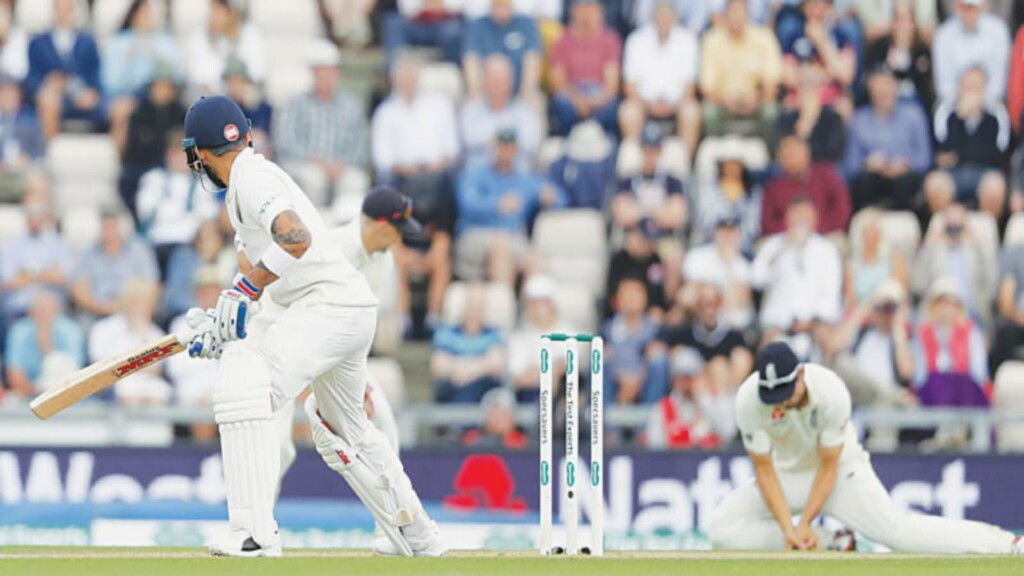
“I don’t believe in that balance. I have never believed in that balance,” said Kohli when suggested that given the propensity for batting collapses, an extra batsman would help arrest the slide. Perhaps his memory is short but the only time he won a series in a SENA country was when India played with four specialist bowlers and six batsmen with Rishabh Pant at number 7. That was Australia in 2018.
Even India’s recent Test series victory in Australia under Ajinkya Rahane came when India complemented their bowling options with enough batting depth, and those two – Washington Sundar and Shardul Thakur – came to their rescue in the decisive Test match.
Kohli and short memory
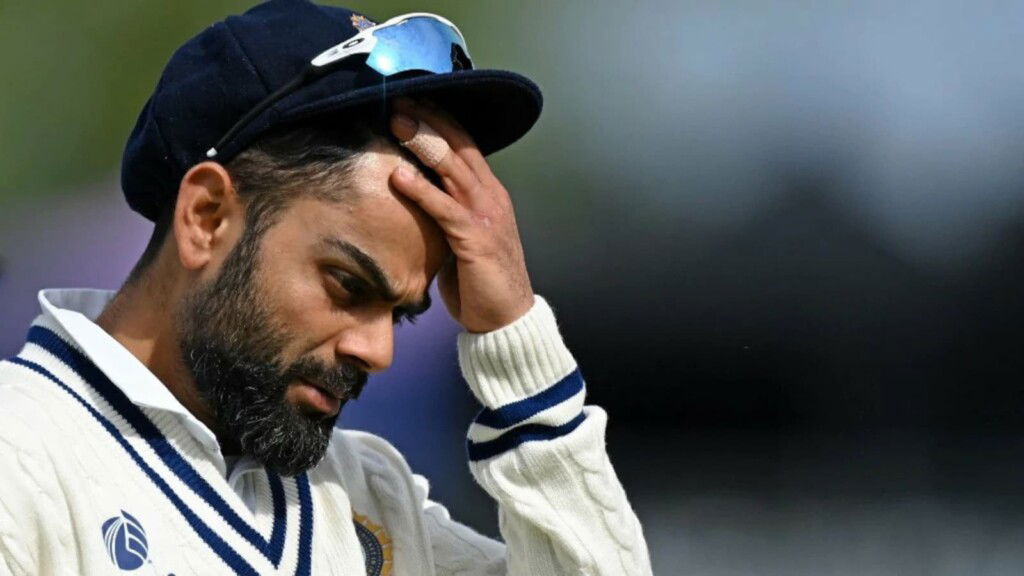
Perhaps Kohli is living in a different generation where the Indian middle order was actually good and did not need proclamations of being the best Indian Test team in the last 15 years. And they always had a batsman at number six.
“If your top six or seven don’t do a job, that extra guy is not going to bail you out,” said Kohli who must also have forgotten that Rahul Dravid’s knock at Eden Gardens in 2001 accompanying VVS Laxman came from number six or Yuvraj Singh’s 169 accompanying Sourav Ganguly’s double century against Pakistan in Bengaluru came from number six. He should certainly remember Hanuma Vihari’s rear guard action in Sydney saving a Test match coming from number six.
These were all the “extra guy” that either saved or won India a Test match. There are multiple other examples of a specialist batsman at number six contributing to the team. Virat Kohli himself, when publicly and unanimously asked to be dropped, scored his maiden Test century batting at number six.
Perhaps fighting this imaginary one versus all battle makes one incoherent in though. And the final answer of captain Kohli in a press conference that lasted around 15 minutes summed up how battling non existent battles in sport – as in life – makes you into a bitter person.
“Thank you, sir. Finally, I feel this is a cricket press conference”.
Eventually, one must understand that there is more to life than cricket or sport and that everyone deserves to be happy. Perhaps this arrogant and dismissive attitude is actually what makes Kohli tick and that he is not bitter at all.
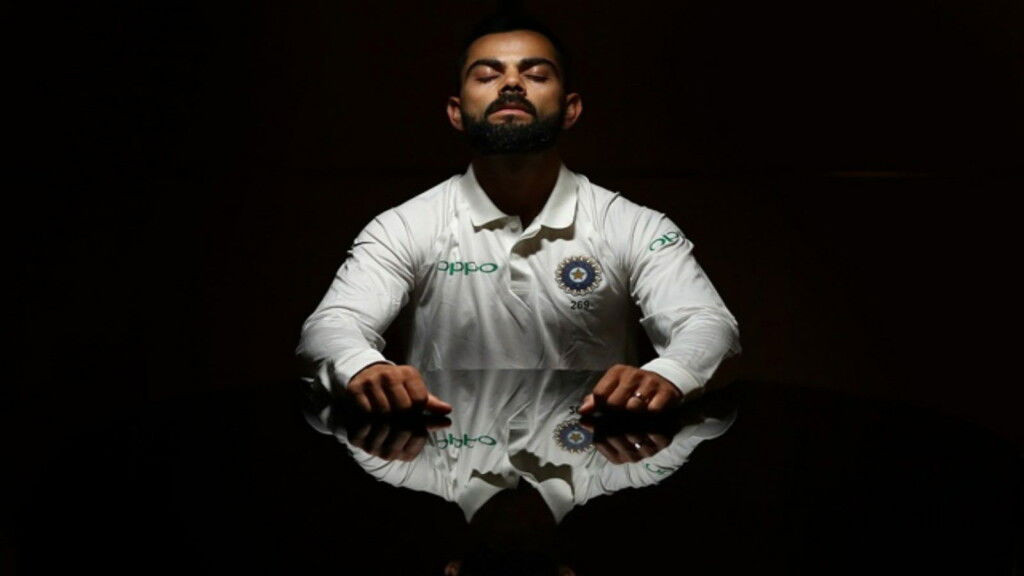
However, there is one problem with this – it fosters an environment which is far from reality and consequently forces people to engage in battles that are solely in the mind. Cricketers then guard themselves and build themselves a shield of protection against people they have to interact with on a frequent basis. It also fosters an unhealthy atmosphere where, on top of the pressures of skill execution in the competitive space of elite sport, there is another battle where, by the very mention of not having to prove anything to outsiders, Kohli very well suggests that this thought has been planted in his mind.
Moreover, it sets a bad precedent for future generations who will now deem everyone outside the team dressing room as enemies. Perhaps not seek advice from ex-cricketers and treat journalists with contempt. And this is not a smooth road. The English football team have been down here and realised this is a losing game they were playing until Gareth Southgate turned it around to create a happy place with everyone involved.
Sport has enough meat within its head to head competition of skills to script beautiful human stories of triumph and overcoming. It does not need doctored contempt to breed context. Certainly not of the kind Mister Kohli imagines everyone to hold against him and his team. It is 2021 and we can all do with one less conflict.







